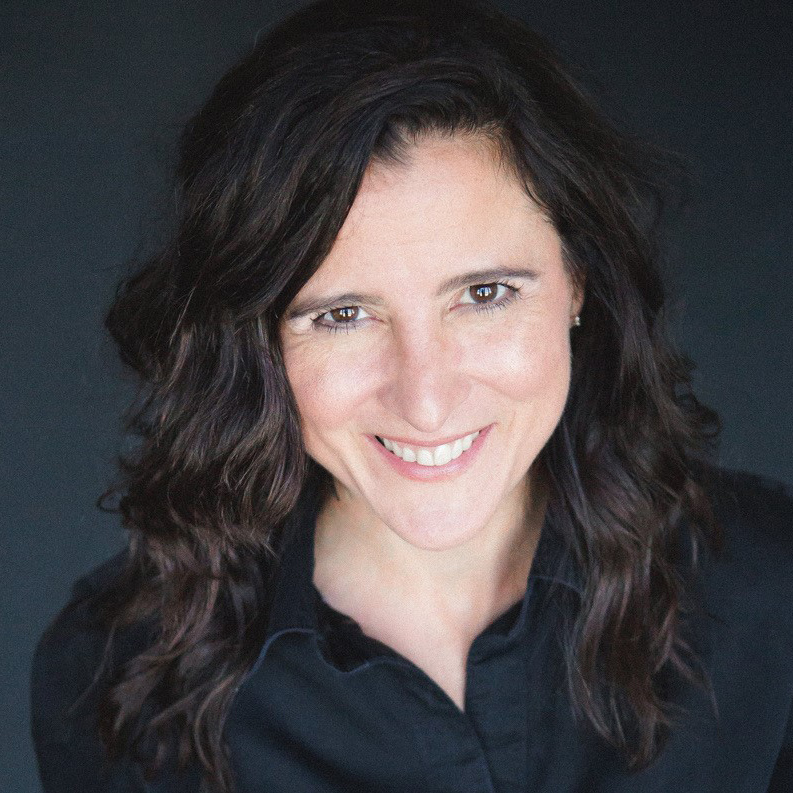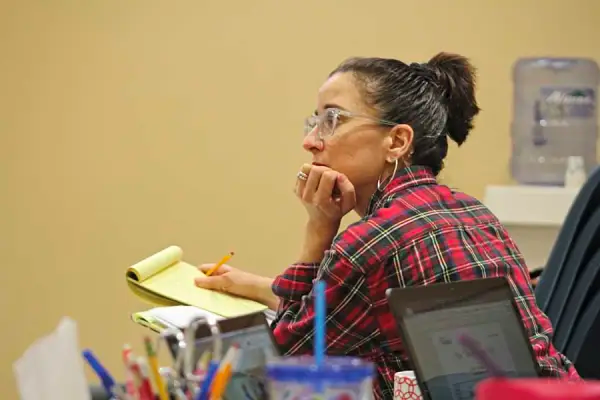Acclaimed Director Lisa Portes Named Chair of Theatre and Dance at UC San Diego
Story by:
Published Date
Story by:
Topics covered:
Share This:
Article Content
How could augmented reality and artificial intelligence transform theater performances? What if aspiring directors, actors, designers and stage managers collaborated with technologists to achieve a novel innovation? And how could theater evolve if more artists, particularly from marginalized communities, had the opportunity to take center stage?
These questions are top of mind for Lisa Portes, who recently joined UC San Diego to become chair of the Department of Theatre and Dance. A highly regarded Cuban American director, educator, advocate and leader, Portes’s aim is to promote a new theater narrative that expands our understanding of the great mystery of what it means to be human.
Most recently serving as head of the MFA Directing Program at DePaul University, Portes brings more than two decades of leadership and teaching in the field. She is an award-winning director with a vibrant career directing world premiere productions nationwide at theaters such as South Coast Rep, Seattle Rep and Steppenwolf Theatre in Chicago. Early in her career, she served as associate director of the Tony Award-winning Broadway production of "The Who's Tommy" and the first national tour of "Titanic."

Her thriving career started right here at UC San Diego. An alumna of the department’s MFA Directing Program, Portes knows firsthand the unique opportunities available. The Department of Theatre and Dance is consistently ranked among the top five graduate programs in the nation, offering students the chance to work with Tony award-winning faculty and apprentice at the La Jolla Playhouse, a longstanding community partner.
“This symbiotic relationship between a world class theater training program and a highly innovative, internationally renowned professional theater is unparalleled in the nation,” said Portes. “For me, my time in the MFA Directing Program was the crucible that formed me as an artist.”
Her path exemplifies exactly what the School of Arts and Humanities intends to instill in its students. “Our goal is to prepare scholars to lead in innovative and ethical ways, think creatively in collaboration with diverse peers and embrace new technologies for the benefit of society,” said Dean Cristina Della Coletta. “Our Theatre and Dance department in particular offers students the chance to become strong visionaries who tell bold stories about some of the most important issues impacting our world today.”
Cue the collaboration
Some of those issues that have national and global implications—such as immigration and human rights—happen just 30 miles south of the university at the United States-Mexico border. The prospect of engaging with timely topics, as well as the opportunity to recognize and celebrate multi-national cultures, is one of the reasons Portes was drawn to UC San Diego.
“There are geographic borders, genre borders and borders between audience members and performers,” said Portes. “How do we explore the malleability of those borders and transcend them through community engagement, entrepreneurial thinking, cross-disciplinarity and technological enhancement?”
Portes also believes that UC San Diego is the ideal place to explore how technology can transform the theater experience. As a research university ranked among the top 20 in the world, the campus is teeming with innovation that could be applied to the creative arts. For instance, scholars are shaping sonic waves of sound into controllable beams, developing holograms to support archaeological research, and making 3D visualizations of shipwrecks to promote marine conservation. The possibilities for innovation are endless when artists and technologists have the chance to co-create.
"Theater and dance are human art forms, so it may seem counterintuitive to lean into technology,” said Portes. “However, in the hands of artists, technology has the potential to make performance more human, more intimate, to transcend borders and to connect us more deeply."
"Theater and dance are human art forms, so it may seem counterintuitive to lean into technology. However, in the hands of artists, technology has the potential to make performance more human, more intimate, to transcend borders and to connect us more deeply."

Enhancing storytelling through technology is just one of many motivators for Portes. One close to her heart is continuing to enhance equity and inclusion in the field, especially as a Latina director. “When I started in this field, I often found myself the only woman in spaces of power, and certainly the only person of color,” she shared. “I aim for a theater that is effortlessly inclusive and am particularly excited by stories that connect disparate communities and invite us into the greater world,” she shared. I believe in theater as a civic arena that uplifts our collective humanity, provokes dialogue across perceived divides and engages our wild imaginations.”
She has embodied this goal already in many ways. After graduating from UC San Diego, she founded Theater E, producing the work of underrepresented writers, garnering her consistent recognition in the annual San Diego Union-Tribune’s “Top Ten Productions of the Year.”
One of her proudest contributions toward improving equity and inclusion is co-founding the Latinx Theater Commons, which celebrates its 10th anniversary this year. The national network and thinktank is designed to identify and support the development of Latinx stories as central to the American narrative. One of her largest initiatives is the tri annual Carnaval of New Latinx Work, which unites theater decisionmakers from across the country to celebrate the latest cohort of Latinx writers, actors, designers, directors and dramaturgs. She intends to bring the lively event to UC San Diego in 2025.
Returning home
Portes officially began her new role on Jan. 1 and she is energized by UC San Diego’s growing prominence as a destination for arts and culture. She joins two dozen Department of Theatre and Dance faculty members who are experts in a range of fields, including acting, dance, lighting, sound, stage and costume design, directing, performance studies, playwriting and stage management.
The homecoming is made even more enjoyable as she reconnects with other current faculty who were peers in her graduate program cohort, including Robert Brill and Naomi Iizuka. “One of the unique aspects of our program is that it gives students the invaluable opportunity to learn in the context of production,” said Iizuka. “As is the case for many of our fellow alums, we continued to collaborate after graduation, working together in regional theatre.”
On the return of her peer, Iizuka explained that Portes is at the forefront of reinvigorating the tradition of American theatre in exciting ways. “It’s thrilling that Lisa will be returning to UC San Diego to lead our department; she is one of our nation’s preeminent directors of new American plays as well as a leader in our field, advocating for the importance of theatre as a forum in which to have important and timely civic conversations.”
Portes will be moving to San Diego from Chicago. Her recent credits include: "Quixote Nuevo" by Octavio Solís (South Coast Rep, Denver Center and Round House Theatre); Shakespeare's "Twelfth Night" (St. Louis Shakespeare Festival); the world premieres of "Laughs in Spanish" by Alexis Scheer (Denver Center) and "Clean/Espejos" by Christine Quintana (South Coast Rep); "Miss You Like Hell" by Quiara Alegría Hudes and Erin Mckeown (Olney Theatre), "Thanksgiving Play" by Larissa Fasthorse, the world premiere of "I Come From Arizona" by Carlos Murillo (Children's Theatre Company) and numerous collaborations with Naomi Iizuka including the world premieres of "Ghostwritten" (Goodman Theatre) and "After A Hundred Years" (Guthrie Theatre).

Topics covered:
Share This:
You May Also Like
Stay in the Know
Keep up with all the latest from UC San Diego. Subscribe to the newsletter today.



